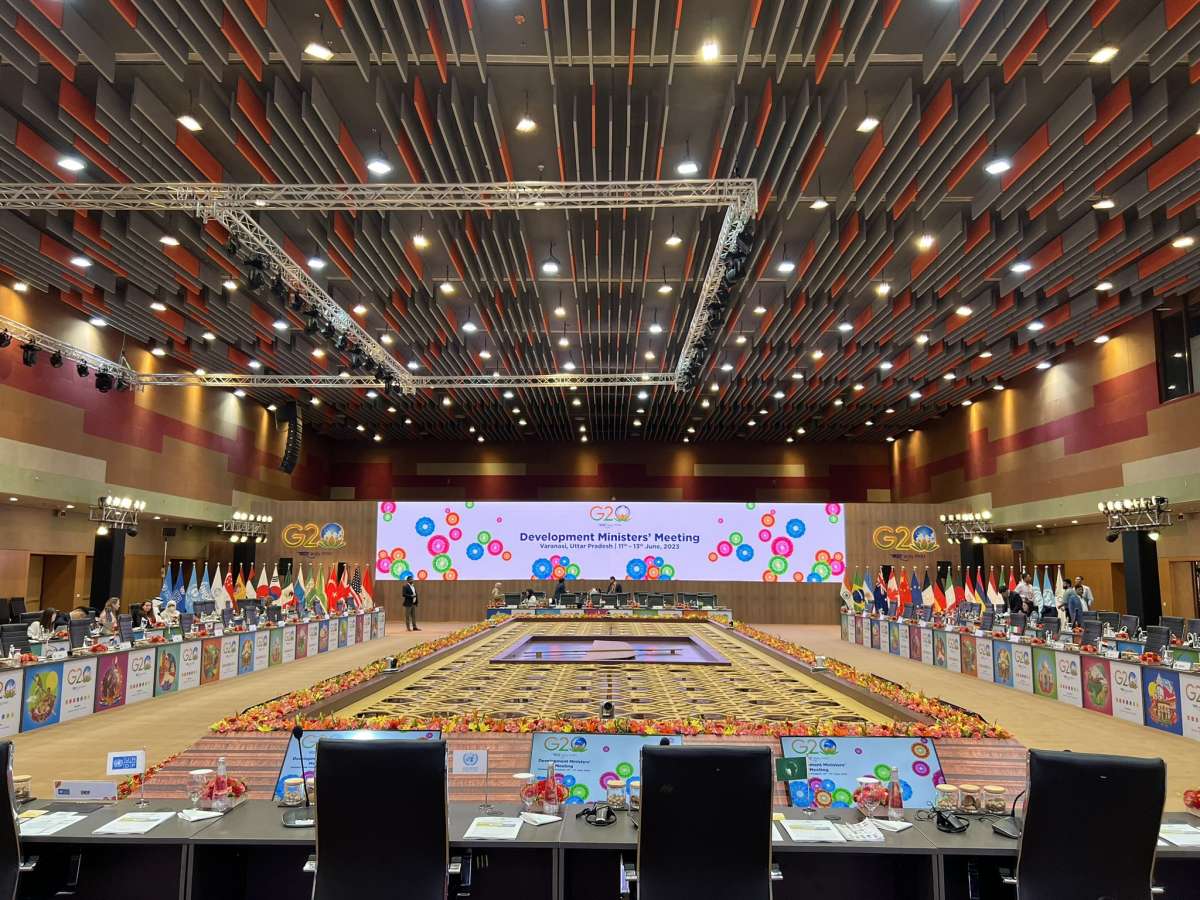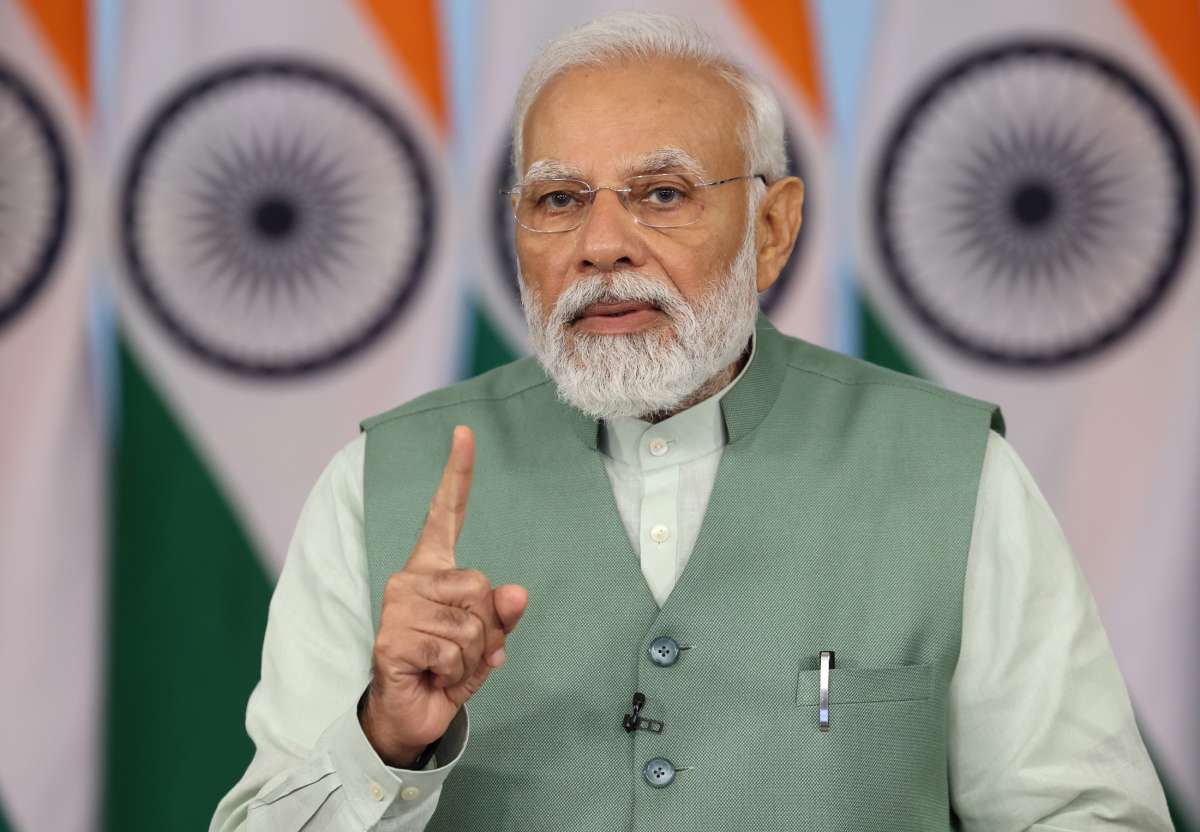The G20 ministers agreed that it is essential to uphold international law and the multilateral system that safeguards peace and stability….reports Asian Lite News
The G20 ministers who met in Varanasi on Monday under India’s G20 presidency’s theme “One Earth, One Family, One Future” reiterated that the use or threat of nuclear weapons in Ukraine conflict is “inadmissible” and that diplomacy and dialogue were vital for peaceful resolution of conflicts.
The war in Ukraine has adversely impacted the global economy. There was a discussion on this issue during the Development Ministers’ Meeting. The G20 delegates reiterated their national positions as expressed in other fora, including the UN Security Council and the UN General Assembly, which, in Resolution No. ES- 11/1 dated 2 March 2022, as adopted by majority vote (141 votes for, 5 against, 35 abstentions, 12 absent) deplores in the strongest terms the aggression by the Russian Federation against Ukraine and demands its complete and unconditional withdrawal from the territory of Ukraine, Ministry of External Affairs said in an official release.
Most members strongly condemned the war in Ukraine and stressed it is causing immense human suffering and exacerbating existing fragilities in the global economy – constraining growth, increasing inflation, disrupting supply chains, heightening energy and food insecurity, and elevating financial stability risks.
There were other views and different assessments of the situation and sanctions. Recognizing that the G20 is not the forum to resolve security issues, the G20 leaders acknowledged that security issues can have significant consequences for the global economy.
The G20 ministers agreed that it is essential to uphold international law and the multilateral system that safeguards peace and stability. This includes defending all the Purposes and Principles enshrined in the Charter of the United Nations and adhering to international humanitarian law, including the protection of civilians and infrastructure in armed conflicts.

Notably, the G20 ministers met at a time of unparalleled multidimensional crises and challenges, that are impacting people, planet, prosperity, peace and partnership and have reversed years of progress on the Sustainable Development Goals (SDGs).
The G20 ministers strongly reaffirmed their commitment to the full and effective implementation of the 2030 Agenda for Sustainable Development and the achievement of its SDGs, while leaving no one behind. They committed to putting sustainable development at the centre of the international cooperation agenda, as per an official release.
Reiterating the universality, indivisibility, and integrated nature of the 2030 Agenda and its comprehensive, far-reaching, and transformative set of SDGs and targets, they committed to advance existing and new G20 collective actions that will contribute to bringing on track and accelerate progress towards timely, full and effective implementation of the 2030 Agenda and achievement of its SDGs and enable the provision of global public goods.
Recognising that social and economic development depends on the sustainable management of the earth’s limited natural resources, the G20 leaders committed to strengthening G20’s efforts in building an integrated approach for achieving sustainable development in its three dimensions–economic, social and environmental–in a balanced and integrated manner, the MEA release said.
Acknowledging the SDGs’ financing gap while taking note of the ongoing discussions on the UN Secretary General’s proposal for SDG stimulus at the UN as well as the upcoming Paris Summit for New Global Financing Pact and reaffirming that addressing the growing debt vulnerabilities, removing bottlenecks faced by developing countries in availing financing and resource mobilization from all sources–public and private, domestic and international, including innovative financing mechanisms such as blended finance, de-risking instruments and other sustainability-related financial instruments–are crucial for the implementation of the 2030 Agenda and achievement of its SDGs.
In this regard, the G20 delegates also reaffirmed and reiterated the call for enhancing international cooperation, and strengthening and evolving multilateral development banks.
They also underlined the importance of enhancing debt transparency and sustainability and implementing coordinated debt treatments under the G20 Common Framework for Debt Treatment beyond the DSSI in a predictable, timely, orderly and coordinated manner and in this context call for strengthening G20 efforts, including through collaboration with relevant G20 work streams.
The G20 leaders also reiterated their unwavering commitment to international cooperation, multilateralism and global solidarity as the best way for the world to effectively address, overcome and recover from the current and other pressing global crises and challenges. They emphasised the need for greater collaboration, partnerships and contributions of all partners and stakeholders, including that of civil society, the private sector and academia, among others, and in this regard underline the importance of international partnerships with partner countries, the United Nations system and other relevant international organizations, while emphasizing the need for enhancing North-South, South-South and Triangular cooperation.
The outcome documents adopted shall be submitted for consideration by the Leaders to be annexed to the G20 Summit Declaration to be held in New Delhi on September 9-10, 2023.
The G20 ministers also welcomed Brazil’s G20 Presidency in 2024 and South Africa’s G20 Presidency in 2025 to take forward the collective agenda of the G20 DWG, the official release added. (ANI)














